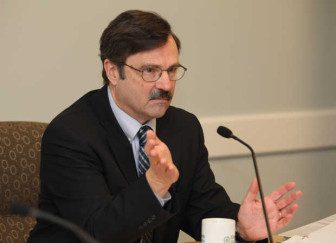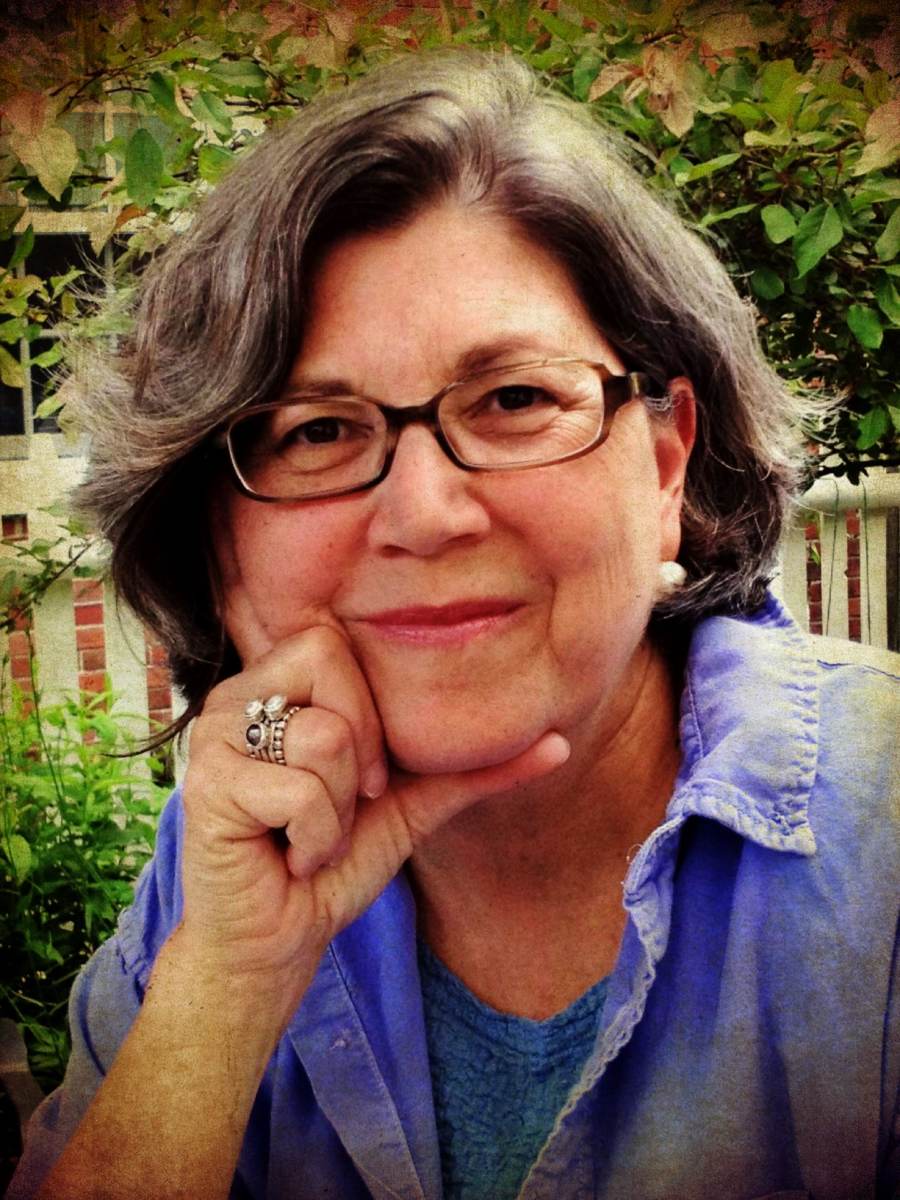Three people in the state have the power to decide how much Mainers pay every month for water, natural gas, telephone and electricity.
They’re the members of the state Public Utilities Commission, or PUC, and they preside over decorous, court-like proceedings where they set rates and regulate the approximately 430 telephone, electric, gas and water utility companies and districts in the state.
But now, a conflict has broken out between one of the commissioners and Gov. Paul LePage. It pits the lone Baldacci-appointee on the commission, David Littell, against LePage, in an argument about ethics and public confidence in the commission’s work.

The dispute means an important water utilities case involving a multinational company, Nestle Waters, cannot be decided until the governor and the commissioner resolve their differences.
On May 5, Littell removed himself from considering the high-profile case, saying his past association with a prominent law firm involved in the case created the appearance of a conflict of interest.
Littell was the third commissioner to remove himself from considering the case because of ties to a company or law firm involved in the case.
LePage subsequently told Littell an appearance of a conflict wasn’t enough to disqualify him.
“By applying the standard you outlined in your memo, as Commissioner you would be unable to participate in cases ranging from telecommunications to wind development,” wrote LePage in a May 13 letter to Littell.
And even though a recently passed law gives the governor the power to appoint a replacement commissioner to sit on any case where there’s not a quorum, LePage now says he won’t replace Littell with a judge. He’s already done that to replace one of the other two commissioners, and anticipated that particular replacement, retired Justice Paul Rudman, would decide the case with Littell.
“I do not agree with Commissioner Littell’s response,” wrote LePage in a June 2 letter to the PUC. “Unless there are unforeseen developments, I do not anticipate appointing an additional alternative Commissioner…”

That means the case cannot go forward, because there isn’t a quorum of two.
The conflict is about whether Littell should participate in a case involving the bottled water giant Nestle Waters, which sells Poland Spring mineral water, and the family-owned utility Fryeburg Water Co. The two companies want commission approval of a fresh 25-year contract allowing Fryeburg to sell water to Nestle, a proposal opposed by some area residents and national water-rights advocates, who say the price Nestle will pay for the water is too low and that the deal could put Nestle’s claim on Fryeburg water ahead of residents’ right to it.
Littell was formerly a partner at Pierce Atwood, the law firm representing Nestle and the Fryeburg Water Co., and he worked there on legal matters for Poland Spring before the brand was acquired by Nestle.
At first, Littell did not recuse himself, stating on October 9, 2012, as the PUC began consideration of the case, that he “was not personally and substantially involved in any matters related to Nestle Water North America, Inc. and the Fryeburg Water Company” while working at Pierce Atwood.

Both of Littell’s two fellow commissioners, Mark Vannoy and chairman Thomas Welch, had previously worked for Nestle Waters. Vannoy, an engineer, worked on many projects for the company, and Welch, an attorney, worked on Nestle’s legal affairs at the Pierce Atwood law firm.
Vannoy recused himself before the case was taken up by the commission; Welch remained on the case for a year.
But in 2013, the case became more controversial when the Portland Press Herald published a story detailing the conflicts of interest faced by the two PUC commissioners.
Welch recused himself in October of 2013, after the case had gone through a year of commission procedures.
“…[I]nformation subject to the attorney-client privilege that I gained while representing Nestle might have some bearing on a determination of the merits of the application,” wrote Welch in his recusal statement.
The Welch and Vannoy recusals meant the case was stalled because the commission no longer had the required two-member quorum.
That led state Rep. Diane Russell, D-Portland, to sponsor legislation authorizing the governor to designate alternate commissioners in such circumstances. The legislation passed, and in May, LePage appointed former Justice Paul Rudman to sit as an alternate commissioner in the case, along with Littell.
Littell said in an interview that his opinion changed about the need to recuse himself after the case became the subject of media attention. He said the appearance that he had a conflict was a serious matter.
“It was front page news,” Littell said. “I think it’s very important for the public to have confidence in what we do, that we’re making decisions on the merits and not because we have connections to particular entities.”
Once the legislation was passed allowing alternates to be appointed, Littell said, he made his move.
That didn’t sit well with PUC Chairman Welch.
“Certainly the existence of a prior affiliation with a law firm representing parties in a case is not in my view a sufficient basis for recusal,” said Welch. Now, “the case cannot go forward.”
Sen. John Cleveland, D-Auburn, co-chairman of the legislature’s energy committee, which has oversight over the PUC, said that he was also concerned about the inability of the PUC to make a decision on the Nestle-Fryeburg case.
“I think it’s unfortunate that the governor isn’t proceeding to nominate a sufficient number of temporary commissioners so that the case can be finished,” said Cleveland. “It’s been waiting for more than a year for a quorum and unfortunately they can’t proceed without a quorum.”
Retired lawyer Daniel Boxer, currently an adjunct professor of governance and business ethics at the University of Maine School of Law, said Littell’s recusal would not necessarily mean he’d have to recuse himself from all cases that involve his former employer, Pierce Atwood.
“I think it would have some precedential weight in subsequent situations that were identical to this one,” said Boxer, who also worked at Pierce Atwood until 1996. “Clearly what he has said in this situation is, ‘A question has been raised about whether my involvement would be appropriate. In this kind of situation I choose to take the cautious approach.’”
In other cases, said Boxer, where no one has raised a question about his participation and the integrity of the PUC is not at issue, Littell would be free to participate.
“He’s left himself the opportunity to look at every situation uniquely, judging what each situation is about, which is what ethical decisions are about,” said Boxer.
LePage’s office did not respond to a request for an interview about the case.



